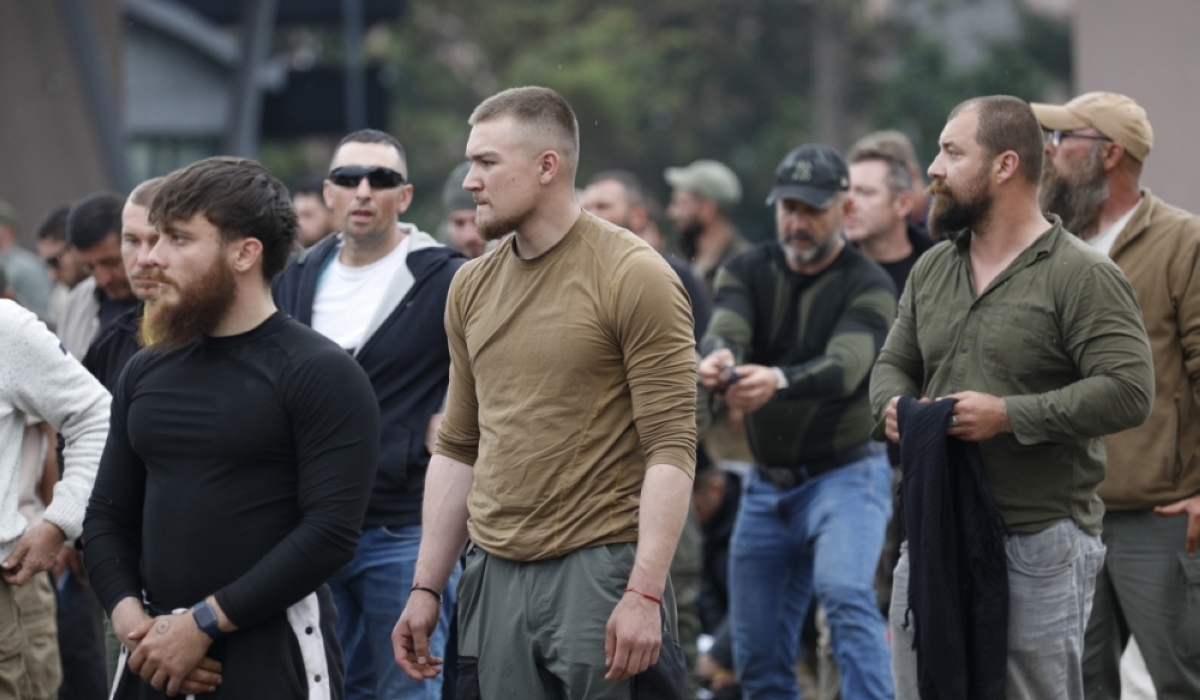
In the DR Congo, active-duty soldiers were mercenaries, according to a Romanian state investigation
The Romanian Ministry of Defense’s inquiry revealed that hundreds of active-duty soldiers and reservists were engaged in mercenary work in the Democratic Republic of the Congo, according to reports in the European media.
1,500–2,000 Eastern European mercenaries were part of the government coalition fighting the M23 rebels in eastern DR Congo. Both African Union and United Nations conventions forbid the use of mercenaries in armed combat.
According to a Friday, April 4 report by Brussels-based media outlet Euractiv, the Romanian Ministry of Defense found that hundreds of reservist troops who had been moved to the reserves had signed contracts with private security firms that operate in the Democratic Republic of the Congo.
Some active-duty troops who were on parental leave had fought as mercenaries in the Democratic Republic of the Congo, according to the official investigation.
In 2023–2024, over 24 reservists who had previously worked for private security firms in Congo were reintegrated into the military and are currently assigned to different Ministry of Defense units, according to the reports.
In late January, after the rebels captured Goma, the provincial capital of North Kivu, around 300 European mercenaries, some of whom had served in the French Foreign Legion, turned themselves in to the M23. After receiving safe transit through Rwanda, they boarded aircraft to their respective nations.
According to the Euractiv news article, up to 466 Romanian troops who had been moved to the reserves because they died, resigned, or reached the age limit were involved in security-related actions in Congo.
According to Euractiv, seven active-duty military members were found to have “unjustly” worked in the Democratic Republic of the Congo between 2023 and the beginning of 2025 while on parental leave that was legally permitted for children under the age of two.
These soldiers had engaged in activities outside of their official military duties and left the nation without permission, among other legal and regulatory violations, according to the probe.
Three of the seven are still on parental leave, and the other four have gone back to work.
The Military Prosecutor’s Office has already been tasked with handling the case of one soldier, and the other six will face comparable legal proceedings.
As for the prosecutor’s judgment on potential criminal charges, it is said that administrative and disciplinary actions have been started.
Since the 24 soldiers had participated in mercenary operations in the Democratic Republic of the Congo, the Romanian defense ministry insisted that their reintegration does not present “significant national security risks,” given that they are in lower-level roles with little access to classified material.
According to reports, Defense Minister Angel Tîlvăr issued an order for “an urgent review of the circumstances and responsibilities that allowed these situations to occur, as well as the implementation of stricter preventive measures in the future.”
The Congolese army, Burundian soldiers, SADC forces, militias like the FDLR, which is connected to the 1994 Genocide against the Tutsi, and local organizations known as Wazalendo fought alongside the European mercenaries.
In violation of the 1989 UN International Convention against the Recruitment, Use, Financing, and Training of Mercenaries and the 1977 Organization of African Unity (OAU) Convention for the Elimination of Mercenaryism, which served as the forerunner to the African Union, the Congolese government came under fire for employing mercenaries.
The international world, and European nations in particular, came under fire from Rwanda for failing to acknowledge the involvement of mercenaries in the fighting in the eastern Democratic Republic of the Congo. Rwanda also voiced its security worries regarding the Congolese government coalition’s plan to assault its country.
All Categories
Recent Posts
Tags
+13162306000
zoneyetu@yahoo.com



